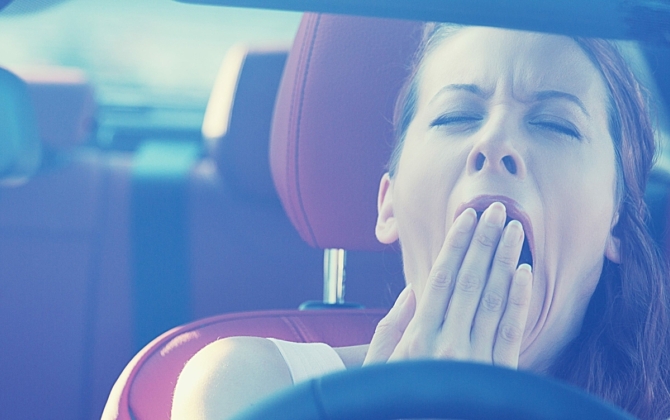Driving while fatigued has reached alarming levels in Australia with 20 per cent of drivers admitting they have fallen asleep behind the wheel at least once. Fatigue related crashes can happen at any time of day, not just late at night. Researchers from Neuroscience Research Australia (NeuRA) are urging drivers to be aware of fatigue before driving this festive season.
Professor Danny Eckert, Head of the NeuRA Sleep and Breathing Lab, says caffeine can’t replace a good night’s sleep. If you’re awake for 19 continuous hours, your level of fatigue is equivalent to a Blood Alcohol Level of 0.05 and after 24 hours without sleep this level is equivalent to twice the legal limit. Other situations including shift work, having a restless sleep, a new baby in the house or a late night out with friends can lead to fatigue and put you and others at risk if you decide to drive.
“While you’re awake throughout the day chemicals such as adenosine build up in the brain which make you feel sleepy – this isn’t something you can fight,” said Professor Eckert.
“Driving fatigued is just as dangerous as driving under the influence and fatigue combined with a legal amount of alcohol is even more likely to result in a crash.”
Whether you are travelling for a family holiday or driving to Christmas Day lunch it is imperative to be aware of signs of fatigue.
“Rolling down the windows, turning the radio up and struggling to keep your eyes open while driving are all signs of drowsiness, which can lead to falling asleep behind the wheel or having impaired judgement on the road,” said Professor Eckert.
Fatigue is one of the big three killers on Australian roads. It is estimated that 20 to 30 per cent of all fatal crashes are due to fatigue.
Transport industry leader Transurban is partnering with NeuRA to strive for fatality and injury-free roads through funding the Transurban Road Safety Centre.
Group Executive Project Delivery, Tony Adams said Transurban understands the importance of road safety research and the danger of driving while fatigued.
“The holiday season is a time when many families are travelling longer distances after a busy year and on roads they are less familiar with,” said Mr. Adams.
“We know many drivers may not be good at judging how tired they are when they get behind the wheel, which is a good reason to remind people to be well rested before travelling.”
Good sleep starts with good sleep habits, which can be introduced at home. Professor Eckert’s tips for a good night’s sleep include:
- Establishing a regular sleep routine and bed time
- Avoiding your smart phone one hour before bed to avoid blue light stimulation
- Bringing the lights down
- Avoiding caffeinated drinks after 2pm.
“To avoid fatigue on long journeys the message is simple and is one we all know well. When you are feeling tired, stop and take a break,” said Mr. Adams.
Find out more
Digital content including audio grabs from Professor Danny Eckert available here: https://drive.google.com/open?id=1krccYcjjYrO7QHGzGAKwMBvVE8lsbmZT




